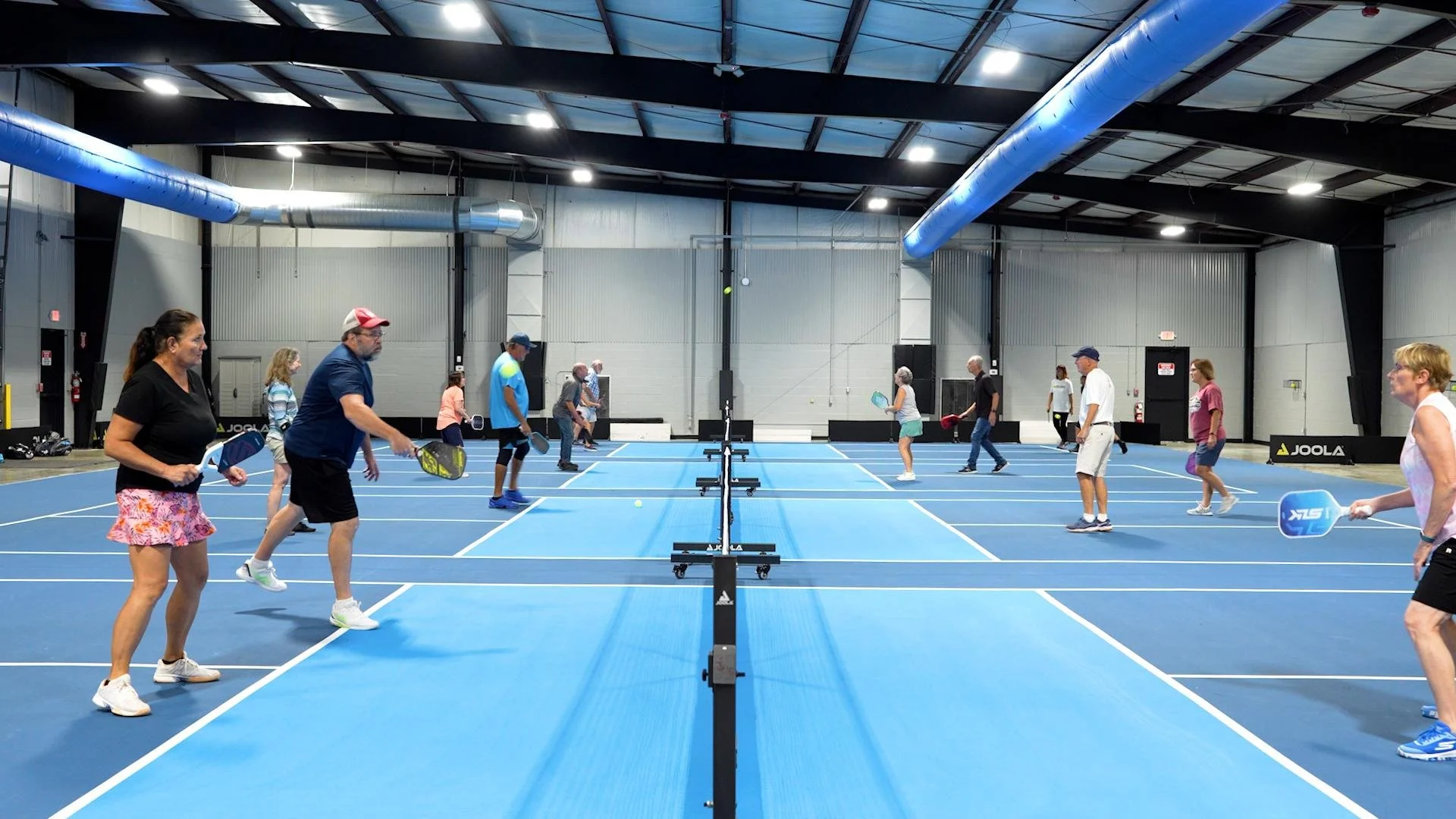Rec Play with Intention: How to Use Casual Games to Get Better
Picture this. It’s a sunny Saturday morning. The courts are buzzing with laughter, clinking paddles after each game, and the occasional “Nice shot!” echoing across the court. You’re here to play, move your body, enjoy some friendly competition—and hopefully catch one of those long rallies with dinks, smashes, blocks, resets, flips, all in one sequence. The fun ones that make you laugh out loud in pure joy.
But then it happens. THAT GUY shows up.
You know the one: full matching wardrobe, looking like he’s a sponsored pro (he’s not). Bag full of paddles. Sweatband on. And when he gets on the court? He’s slamming every ball like it owes him money. He’s not just playing—he’s out for blood, determined to prove he’s the best player out there.
Sounds fun doesn’t it?
Nope.
First off, don’t be that guy.
Instead, let’s talk about how to play recreational pickleball with intention—smart, strategic, and engaged. You know… using the skills that you learned in lessons but keep forgetting to try in actual games. Let’s not default to old habits.
Playing with Intention: What Does That Even Mean?
It means showing up with a plan—an idea of what you want to work on that day. You're not smashing balls and hoping for the best. You’re choosing your shots, placing the ball thoughtfully, and keeping a sequence or strategy in mind. You’re communicating with your partner, even if you just met them five minutes ago.
That part matters too—see how you play with different partner styles.
Playing with intention means:
Know when to drop and when to drive. Read the bounce of the ball.
Move your feet. Footwork matters. A lot.
Read your opponents and adjust. Watch their paddle, their tempo, and how their play style affects your own.
Stay mentally in the point. Even if the score is 2-2 for the third time because no one can remember who served last.
Photo by YMCA of Greater Cleveland
Smart ≠ Aggressive
Let’s clear something up that often gets misunderstood:
Being a smart player doesn’t mean being the most powerful.
It means:
Playing efficiently.
Placing shots with intention.
Setting up your partner.
Mixing up pace and tempo.
Staying aware of the flow of the game.
Every shot has an effective response—but not every response is the same. Are you off-balance and just trying to extend the rally? Put it back in play. Is the ball in the wheelhouse and in a spot where you can be aggressive (with control)? Go for the flip or roll.
One important note:
You can be aggressive with placement.
Aggressive doesn’t always mean speed.
And if you are ripping a forehand down the middle or tagging another 80-year-old player who popped up a dink? Dude. Cut it out.
Put it back in play and see how patient you can be.
Be Competitive… and Chill
It’s totally fine to want to win. It’s our competitive nature—we all enjoy a little friendly rivalry.
But… you knew a “but” was coming, didn’t you?
In rec play, your goals should be twofold:
Play your best to improve specific skills
Make sure your group wants to see you again next week.
That balance is important. You want to be invited back.
Maybe there’s even a moment to share something helpful—turn it into a teachable moment.
Important Guidelines to Remember Before Playing
Communicate with your partner - Strategize. Laugh off mistakes (short memory). Share the court. No eye-rolls or side-eyes. And yeah, sometimes that error was your fault.
Respect the rally - Not every point is a chance to prove dominance. Appreciate the long dink rally, or that random lob that actually landed in. Complimenting others shows character—and might help you see the game in a new way.
Read the room - If you're with beginners or older players, match their energy. If it's a stronger group, lean in and respectfully bring your A-game.
Don’t coach unless asked - Unless someone specifically says, “Hey, got any tips?” keep your advice to yourself. A “Nice try!” goes further than “You should’ve dropped that.” No one likes the unsolicited know-it-all.
Play Smart, Play Kind
Every time you step on the court, you’ve got a choice:
Play to win the point? Or play to build the rally, grow the community, and make someone’s day?
You can do both. But if you’re clearly the strongest player, it’s worth thinking about how you play—not just that you win.
Smart players know how to compete and connect.
So play with intention.
With your shots, your energy, and your attitude.
I repeat: Attitude.
When your partner messes up? Move on. Encourage.
Give it a try.
Play with intention.


